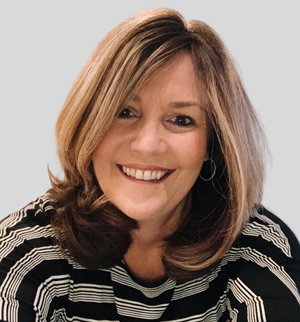Sisterhood Spotlight

Angie Grant is a foster and adoptive parent and a dedicated advocate for foster kids and families. She and her husband serve in many areas, including on staff at Cloverhill Church in Midlothian, VA. In this Sisterhood Spotlight, Angie shares lessons from her own experience fostering, advice for moms who are involved in or considering fostering and resources for Virginians along the way.
What led you and your husband to pursue adoption?
We did not set out on our journey with foster care to adopt. Honestly, we didn’t really know what we were doing! Our desire was to open our home to vulnerable kids, come alongside biological families and assist them in reunification. Our adoption story unfolded when reunification wasn’t going to happen. Our little guy needed a forever family. We became that family – we were that family. There is rarely a day that I don’t think about the loss he has incurred. There is also rarely a year that I don’t think about his biological mom and grieve for all she’s missed, yet so thankful she chose life!
What is one of the most important things you’ve learned from fostering?
I have learned so much! It’s hard to choose just one thing.
Someone once shared with me that deep work requires deep rest. The work that goes into fostering kids from hard places is one of the most taxing jobs you’ll ever have. There are so many twists and turns both emotionally and relationally. Navigating your “new normal” can be isolating and even fearful. Doing life in community is key and asking for help is necessary. Foster parents that have community and wrap-around support stay in the game longer. Statistics tell us that most foster parents have one placement and then they’re done – I think largely in part to not having community in place and not taking time to rest and refuel. Having these things in place before you say YES to that very first placement will serve you well!
In light of Foster Care Awareness Month, what would you say to another mother who is questioning her ability to foster a child?
I would tell her to learn all she could! I would encourage her to attend a local support group with other foster and adoptive families or attend an interest meeting at a local agency and listen to others’ experiences. If she were married with kids already, I would ask how that is going? If there are already struggles at home, foster care will not make those rough spots better – it actually has the potential of making the rough spots rougher. I would also say to her that impacting the life of a child is an amazing adventure – impacting an entire family is more than amazing. Both can happen, simultaneously.
What resources are available to help foster parents and families?
So many fabulous resources exist! A few of my favorites are Empowered to Connect (both website and podcast) and Robyn Gobbel (both website and podcast). Also, there’s a Facebook group called Adoption Connection – lots of great stuff there. Book resources that I have read multiple times are The Connected Child by Dr. Karyn Purvis, The Whole-Brain Child by Dan Siegel and The Body Keeps the Score by Bessel van der Kolk. Local resources include Virginia’s Kids Belong – lots of great ways to jump in and be involved in the space of foster care and adoption.
What are a few things you’d like Virginians to know about trauma training?
Trauma training is essential in the world we live in. As a Cultivate Connection Facilitator, I have learned that there are levels or stages as to what “Trauma Training” can be: 1) We can be trauma aware – meaning we can become aware of the need for trauma-informed care. 2) We can be trauma sensitive – meaning we can grow in knowledge and skills while exploring the principles of trauma-informed care and how trauma impacts children and families. 3) We can be trauma responsive, meaning we implement trauma-informed principles and practices individually and organizationally, and 4) become trauma informed, meaning fully integrate trauma-informed principles and practices into the culture of a family and/organization.
In summary, we increase awareness, introduce knowledge and skills (which we are getting better at!), implement change and then integrate practices. If Virginia became trauma informed – meaning our schools, our homes, our churches and our places of employment – healing would be expedited in the lives of those affected by trauma. As Virginians, let’s see where we are personally in these stages and move forward!
About Angie Grant
Angie’s greatest joys are her family – she is Mom to 4 and Lolli to 4 grandbabies.
She has a degree in Child and Family Studies and is currently on staff at Cloverhill Church, where she and her husband have led for the past 26 years. She serves as the Executive Director of Cloverhill Christian Academy located in Midlothian, VA. She is an advocate for foster kids and families as an Advocate for The Forgotten Initiative, as well as a Cultivate Connection Facilitator in her community and beyond. She serves on the Families First Board as well as the Chesterfield County-Colonial Heights Department of Social Services Board.
She finds great joy in sharing practical tools that promote healing. As a foster and adoptive parent herself, she understands the challenges that families face on a daily basis. She shares firsthand her own experiences with the desire to bring hope and encouragement to families serving vulnerable kids.